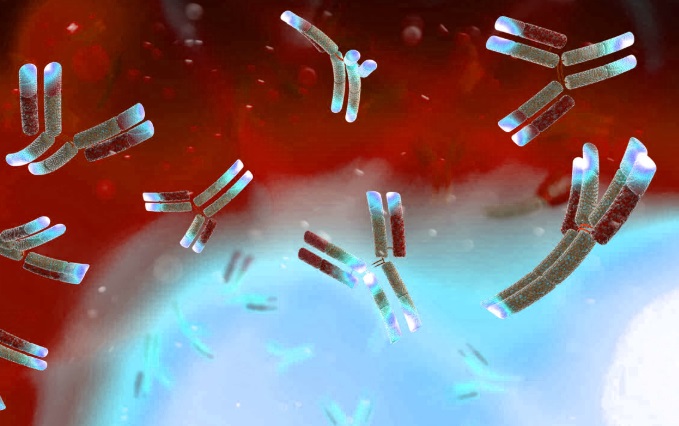Individuals Previously Exposed to COVID-19 With SARS-CoV-2 IgG Antibodies Will Develop Severe Dengue When Infected
Nikhil Prasad Fact checked by:Thailand Medical News Team Jan 25, 2025 2 months, 3 weeks, 4 days, 18 hours, 45 minutes ago
Medical News: A Growing Concern for Endemic Regions
A groundbreaking study conducted by researchers from the Universidad Autónoma Benito Juárez de Oaxaca and the State Laboratory of Oaxaca in Mexico has shed new light on the interplay between prior COVID-19 exposure and severe dengue infections. The findings raise critical questions about how the presence of SARS-CoV-2 IgG antibodies may exacerbate dengue severity - a significant concern in regions where both diseases are prevalent.
 Individuals Previously Exposed to COVID-19 With SARS-CoV-2 IgG Antibodies Will Develop Severe Dengue When Infected
Individuals Previously Exposed to COVID-19 With SARS-CoV-2 IgG Antibodies Will Develop Severe Dengue When Infected
Dengue fever, caused by the dengue virus (DENV), remains a major global health issue, infecting between 100 and 400 million people annually. While most cases are mild, severe dengue can result in hemorrhagic fever, organ failure, and even death. Recent observations suggest that individuals with prior exposure to SARS-CoV-2 - the virus responsible for COVID-19 - may face a heightened risk of severe dengue, a phenomenon possibly linked to antibody-dependent enhancement (ADE). This
Medical News report delves into the scientific basis of this alarming correlation.
What the Study Found: Cross-Reactivity Between Viruses
The study analyzed serum samples from dengue patients with varying profiles of antibodies against both dengue and SARS-CoV-2. A total of 19 patients were categorized into four groups: healthy controls, patients with anti-SARS-CoV-2 IgG antibodies only, patients with both anti-SARS-CoV-2 and anti-dengue IgG antibodies, and patients with only anti-dengue antibodies. Proteomic analysis revealed significant differences in protein expression patterns among these groups, particularly in individuals with dual antibody presence.
The most striking observation was the upregulation of proteins involved in immune regulation, blood coagulation, and platelet degranulation in patients with both SARS-CoV-2 and dengue antibodies. Key proteins such as thrombospondin-1 and coagulation factor XIII B chain were uniquely expressed in this group, highlighting their potential role in severe disease progression. Notably, the researchers identified 12 differentially expressed proteins, with distinct profiles for each group.
Mechanisms Behind Antibody-Dependent Enhancement (ADE)
ADE is a well-documented phenomenon in dengue infections, particularly during secondary infections with a different serotype of the virus. It occurs when non-neutralizing antibodies facilitate viral entry into immune cells, enhancing viral replication and exacerbating disease severity. The study’s findings suggest that SARS-CoV-2 IgG antibodies may similarly contribute to ADE in dengue patients.
The researchers observed that proteins associated with platelet activation and blood coagulation were significantly upregulated in patients with dual antibodies. This could explain the coagulopathy often seen in severe dengue cases.
Furthermore, the presence of anti-SARS-CoV-2 IgG antibodies appears
to amplify immune system dysregulation, shifting the immune response from a protective Th1 profile to a potentially harmful Th2 profile.
The Role of Specific Proteins
Proteins like thrombospondin-1, bone marrow proteoglycan, and antigen KI-67 were uniquely expressed in patients with both SARS-CoV-2 and dengue antibodies. Thrombospondin-1, for example, is released during platelet activation and is linked to the formation of blood clots, which can lead to organ failure in severe dengue cases. Bone marrow proteoglycan, secreted by eosinophils, further stimulates platelet activation, compounding the risk of severe outcomes.
Interestingly, the study also identified proteins with antiviral properties, such as Galectin-1, which were absent in dengue patients. This absence may facilitate viral replication, further worsening the disease. These findings underscore the complex interplay between the immune system and viral infections in the context of ADE.
Clinical and Public Health Implications
The study’s findings have far-reaching implications for clinical management and public health strategies, particularly in regions where dengue and COVID-19 coexist. Healthcare providers must consider prior COVID-19 exposure as a potential risk factor for severe dengue and adapt their treatment protocols accordingly.
The findings also raise questions about the potential impact of COVID-19 vaccines on dengue severity, warranting further investigation.
Conclusions: A Call for Further Research
This research provides compelling molecular evidence linking prior SARS-CoV-2 exposure to increased severity in dengue infections. By identifying specific proteins and pathways involved in this process, the study offers valuable insights into the underlying mechanisms of ADE. However, the authors emphasize the need for additional studies to validate these findings and explore their broader implications.
Ultimately, this study serves as a stark reminder of the interconnectedness of viral diseases and the need for integrated approaches to managing public health. As the world grapples with the long-term impacts of the COVID-19 pandemic, understanding its ripple effects on other infectious diseases is more critical than ever.
The study findings were published on a preprint server and are currently being peer reviewed.
https://www.preprints.org/manuscript/202501.1841/v1
For the latest on Dengue and COVID-19, keep on logging to Thailand
Medical News.
Read Also:
https://www.thailandmedical.news/news/previous-or-existing-covid-19-infection-increases-dengue-disease-severity
https://www.thailandmedical.news/news/breaking-dengue-news-study-shows-that-sars-cov-2-antibodies-from-natural-infections-or-vaccines-cross-react-and-enhance-dengue-infection
https://www.thailandmedical.news/news/study-warns-that-coinfections-with-dengue-trigger-the-emergence-of-new-sars-cov-2-variants
https://www.thailandmedical.news/news/singapore-study-provides-new-insights-on-how-prior-dengue-infection-influences-covid-19-risk-and-severity
https://www.thailandmedical.news/news/taiwanese-study-finds-that-hernandonine-from-hernandia-nymphaeifolia-can-be-used-to-combat-the-dengue-virus
https://www.thailandmedical.news/news/indian-study-discovers-that-dengue-alters-cd154-and-cd148-expression-in-human-platelets
